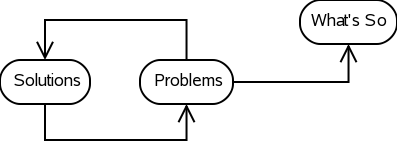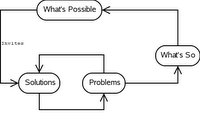I Said: SEC football is where it is at.
Result: Dead on. Of course, who would argue that? Okay, maybe some people would - but not the intelligent ones. There were so many good SEC football games this year, I don't even know where to begin. So I won't.
The disappointment of the year has to be Auburn. When these guys are clicking, I still think they are the best team in the SEC. But they didn't put it together week after week, quarter after quarter. Hats off to Florida and Urban Meyer (who I like) for winning the SEC and a title bid.
I Said: The PAC-10 is overrated.
Result: Pretty much true. USC is good - but they lost to Oregon State and UCLA (?). Who knows about anyone else. We'll find out in the Rose Bowl.
I Said: Notre Dame games are usually a good bet.
Result: Whoops. I should have looked at their schedule. Are you serious? I'm sure they can get a better schedule than that.
I Said: The Big 10 and Big XII are also good.
Result: Mixed. The Big 10 is really more like the Big 2 (I can't take credit for that, but I don't know who to give it to). The Big XII has been pretty unpredictable, but the Texas v. Texas A&M game was great!
I Said: Utah State is terrible.
Result: Yep. Ranked 118th in the nation. At least they won a game, although it might have been by forfeit.
I Said: BYU is not nearly as good as they think they are.
Result: BYU is probably not as good as they think they are - but they are pretty darn good. They deserve their #20 ranking.
So, now we are gearing up for the title game. As much as I like to see an SEC team in the title game, I have to say that Michigan got robbed here. Sorry. And if USC had beaten UCLA, I would still feel the same way. So what if it is a rematch of the earlier game? The national title game should be between the two best teams in the country, and there should be no way that you go down in the polls simply because you don't play one week.
So, here are my predictions for the bowl games - at least the ones I care about:
- Ohio State v. Florida - Ohio State. True, they haven't seen speed like the SEC. But Ohio State is a dang good football team. Florida is not consistent enough, and too error-prone. Sorry Urban.
- Notre Dame v. LSU - LSU. How Notre Dame got invited to this game is beyond me. They are just not nearly so good as LSU, and with this game essentially being a home game for LSU, they have the definite advantage.
- Boise State v. Oklahoma - Oklahoma. Boise State may be undefeated, but they are from the WAC. Utah State is also from the WAC, if that means anything. Unfortunately, this will be great fuel to the fire that says mid-majors shouldn't go to BCS bowls.
- USC v. Michigan - Michigan. They barely lost to Ohio State, the best team in the country, by 3 points. USC lost to Oregon State and UCLA, both unranked.
- Arkansas v. Wisconsin - Arkansas. Outside of Ohio State and Michigan, the rest of the Big 10 are at varying stages of fair. As a general rule, I will always pick the SEC over just about anyone.
- Auburn v. Nebraska - Auburn. At least, Auburn should win it, if they bring their A-game. See the rule above.
- Tennessee v. Penn State - Tennessee. Again, see rule above.
- Cal v. Texas A&M - Cal. This is a tough call and should be a great game to watch.
- BYU v. Oregon - BYU. I saw them play live this year - they are really good.
- Utah State v. North Dakota Culinary & Drama College - ND C&D. Actually, I hear they only have ten people on the entire team, including coaching staff and cheerleaders. But it doesn't change my pick.



















